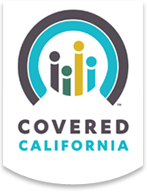Health Savings Account (HSA) Basics
What is an HSA?
A Health Savings Account is a consumer-managed, tax-favored alternative to traditional health insurance created for the purpose of paying medical expenses. To open an HSA, you must be covered by a High Deductible Health Plan (HDHP). Except for preventive care, you must meet the annual deductible before the plan pays benefits. Preventive care services are generally paid either before you meet your deductible after you meet a smaller deductible or on a co-payment basis.
Once you are enrolled, you own and have complete control over the money in your HSA. You make the decisions on how you want it spent, not a third party or a health insurer. You also get to decide how and where you want to invest this money to grow your account.
What are the benefits of an HSA?
- Your own HSA contributions are tax-deductible.
- Interest earned on your account is tax-free.
- Withdrawals for qualified medical expenses are tax-free.
- Unused funds and interest are carried over, without limit, from year to year.
- You own the HSA and it is yours to keep - even when you change plans or retire.
Who is qualified to obtain an HSA?
You must be covered by a High Deductible Health Plan (HDHP) to take advantage of HSAs. You also must not receive coverage under another health insurance plan, not be enrolled in Medicare, and not be someone else's dependent.


